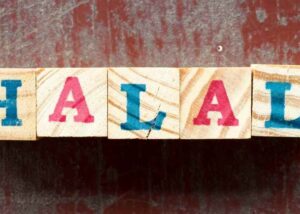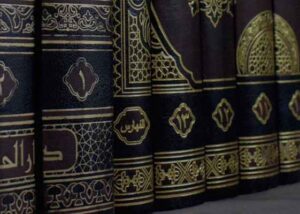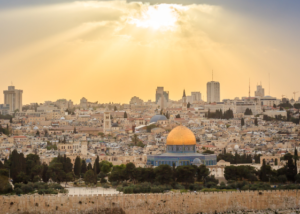Is there a Hadith saying, whoever does not thank people has not thanked Allah Most High?
Quran
Hadith
Islamic Text
Yes, there is a Sahih Hadith stating that whoever does not thank people has not thanked Allah Most High.
حَدَّثَنَا يَزِيدُ، أَخْبَرَنَا الرَّبِيعُ بْنُ مُسْلِمٍ، عَنْ مُحَمَّدِ بْنِ زِيَادٍ، عَنْ أَبِي هُرَيْرَةَ، قَالَ: قَالَ رَسُولُ اللهِ صَلَّى اللهُ عَلَيْهِ وَسَلَّمَ: لَا يَشْكُرُ اللهَ مَنْ لَا يَشْكُرُ النَّاسَ
Abu Hurairah (May Allah Most High be pleased with him) narrated that the Messenger of Allah ﷺ said, ‘Whoever does not thank people has not thanked Allah (Most High).’ (Ahmad, 7939).
Imam Ahmad narrated the above Hadith numerous times. As well as the above narration it is also narrated in the Musnad as Hadith number, 8019, 9034, 9944, 10377 and 21838. The narrators in (Musnad) Ahmad are reliable according to Imam al-Haythami and Imam al-Mundhiri:
رَوَاهُ كُلَّهُ أَحْمَدُ وَالطَّبَرَانِيُّ، وَرِجَالُ أَحْمَدَ ثِقَاتٌ
It was narrated in a complete form by (Imam) Ahmad and (Imam) al-Tabarani. The narrators of (Imam) Ahmad are reliable (Thiqaat). (Majma’ al-Zawaid, Imam Noorud-deen al-Haythami).
رَوَاهُ أَحْمد وَرُوَاته ثِقَات
It was narrated by (Imam) Ahmad. His narrators are reliable (Thiqaat). (Al-Targheeb wal Tarheeb, Imam Zaki al-Deen al-Mundhiri).
The Hadith was also narrated by Imam al-Bukhari in al-Adab al-Mufrad (218). Imam Ibn Hibban narrated it too (3407), as did Imam Abu Dawood (4811). Imam al-Tirmidhi narrated it from Sayidina Abu Hurairah (1954) and said it is Sahih, then he narrated it from Sayidina Abu Saeed and said that Hadith is Hasan.
Thus, the Hadith is authentic without doubt. However, there is some discussion and difference of opinion regarding the meaning of the Hadith. As explained by Imam al-Sayuti:
(لا يشكر الله من لا يشكر النّاس) قال الخطّابي: يتأوّل على وجهين؛ أحدهما: أنّ من كان من طبعه وعادته كفران نعمة الناس وترك الشكر لمعروفهم، كان من عادته كفران نعم الله عزَّ وجلَّ وترك الشكر له، والآخر أنّ الله سبحانه لا يقبل شكر العبد على إحسانه إليه إذا كان العبد لا يشكر إحسان الناس ويكفر معروفهم، لاتصال أحد الأمرين بالآخر. انتهى. (مرقاة الصعود إلى سنن أبي داود).
‘Whoever does not thank people has not thanked Allah (Most High).’ (Imam) al-Khattabi said, it is interpreted in two ways. The first of them is, if a person’s habit and norm is to reject the favors of people, and refrain from thanking them for the good they do (for him). Then his habit will be to reject the blessings of Allah (Mighty and Majestic), and refrain from thanking Him (Most High).
The other (interpretation) is, Allah (Most High) does not accept the gratitude of the slave shown to Him (Most High) for the blessings He has granted, if the slave refrained from thanking people for their favors and rejected their good. This is due to the fact that both are connected to each other. (Imam al-Sayuti, Sharh Abi Dawood).
As we see in the Nass (text) above, there are two different interpretations of the Hadith. The first states that a person who becomes used to ignoring the favors of people will ignore the blessings of Allah Most High. The other opinion holds that, even if a person does thank Allah (Most High) for His blessings, but does not thank people for their favors, then his gratitude to Allah (Most High) is not accepted.
Both interpretations are valid and credible. In both cases we are taught that it is essential to thank people for their favors. No doubt we recognize that all good is ultimately from Allah Most High. However, thanking the means is part of the Islamic teaching and the Sunnah of our beloved Prophet ﷺ. Therefore, one should thank people when they assist him or her in some manner, whilst recognizing that all good is from Allah (Most High).
And Allah Most High Knows Best.
-Answered by Shaykh Noorud-deen Rashid (25.07.2022)
See also:
What do the Hadith gradings mean
See also video






